There has not been any other city in the world that I wanted to love as much as I tried to love Batumi but failed so miserably. Batumi is not a disaster, it is not a terrible city, it is also not completely “soulless,” but it is not for me. When I was riding a cable car in Chiatura, one of the French tourists exclaimed that “Batumi is shit because of all the disgusting Muslims and fucking Slavs in it!” His words, not mine. Certainly, an interesting take on the issue that made me think more about the city than I did before. A few days later, I heard a Georgian housewife shout “Batumi is the worst because of all the damn tourists there!” to what I can only assume was a tourist, since the conversation took place in English. I was told many times that Batumi would not be “good for me” by friends that know me well. Suffice to say, I ended up not having the highest of opinions about it. Here goes nothing, as I try my best to explain why I did not like the city. Trust me, it will not involve any racist or otherwise discriminatory fits in it.
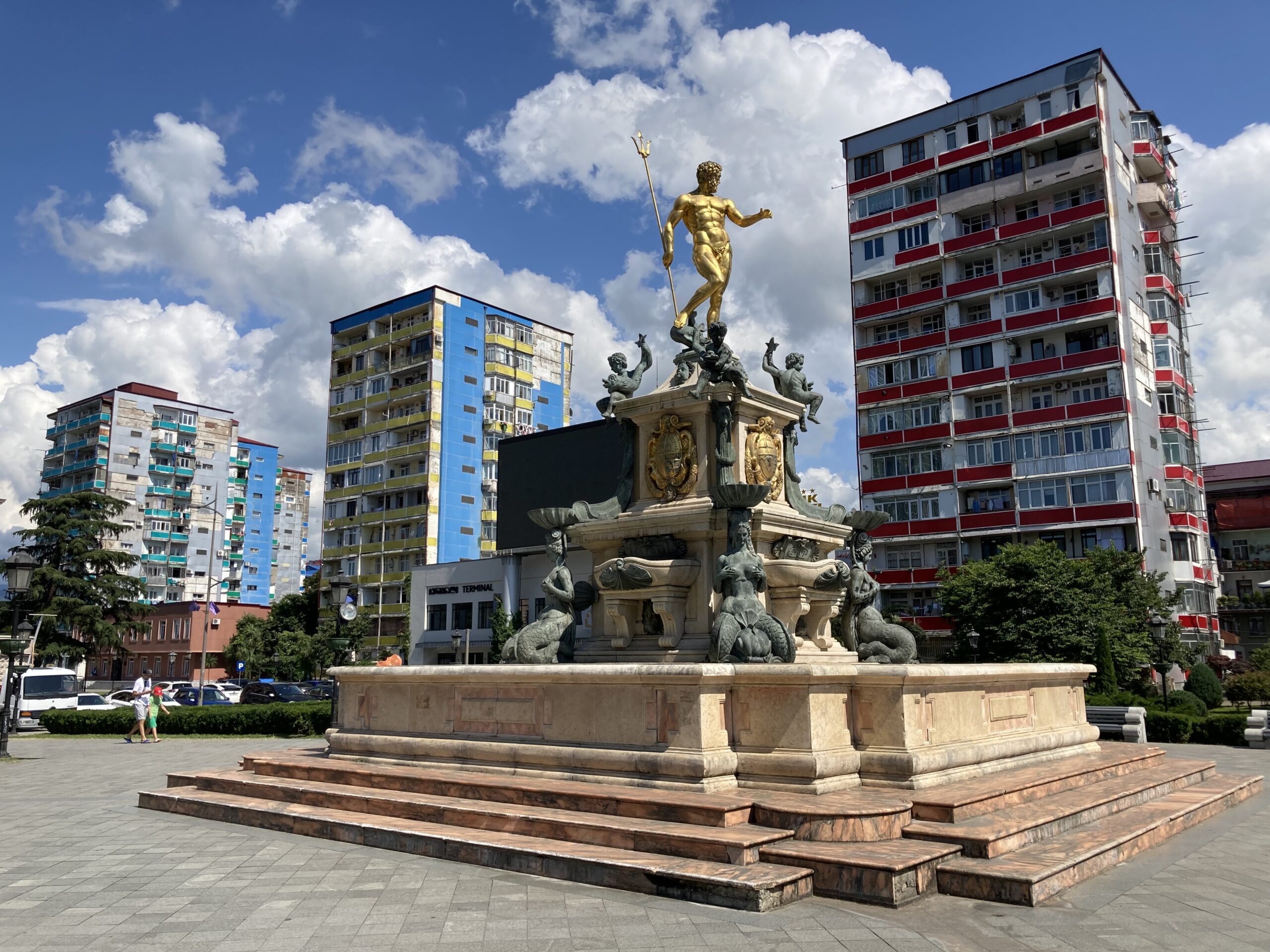
Batumi is a city of contradictions. Glamorous, seemingly gold plated and often quite modern (or at most a century old) sculptures clash a bit too much with the Soviet-era apartments on the background, making any shot of the city an automatically interesting one, though this contradiction start to be weary in a short time.
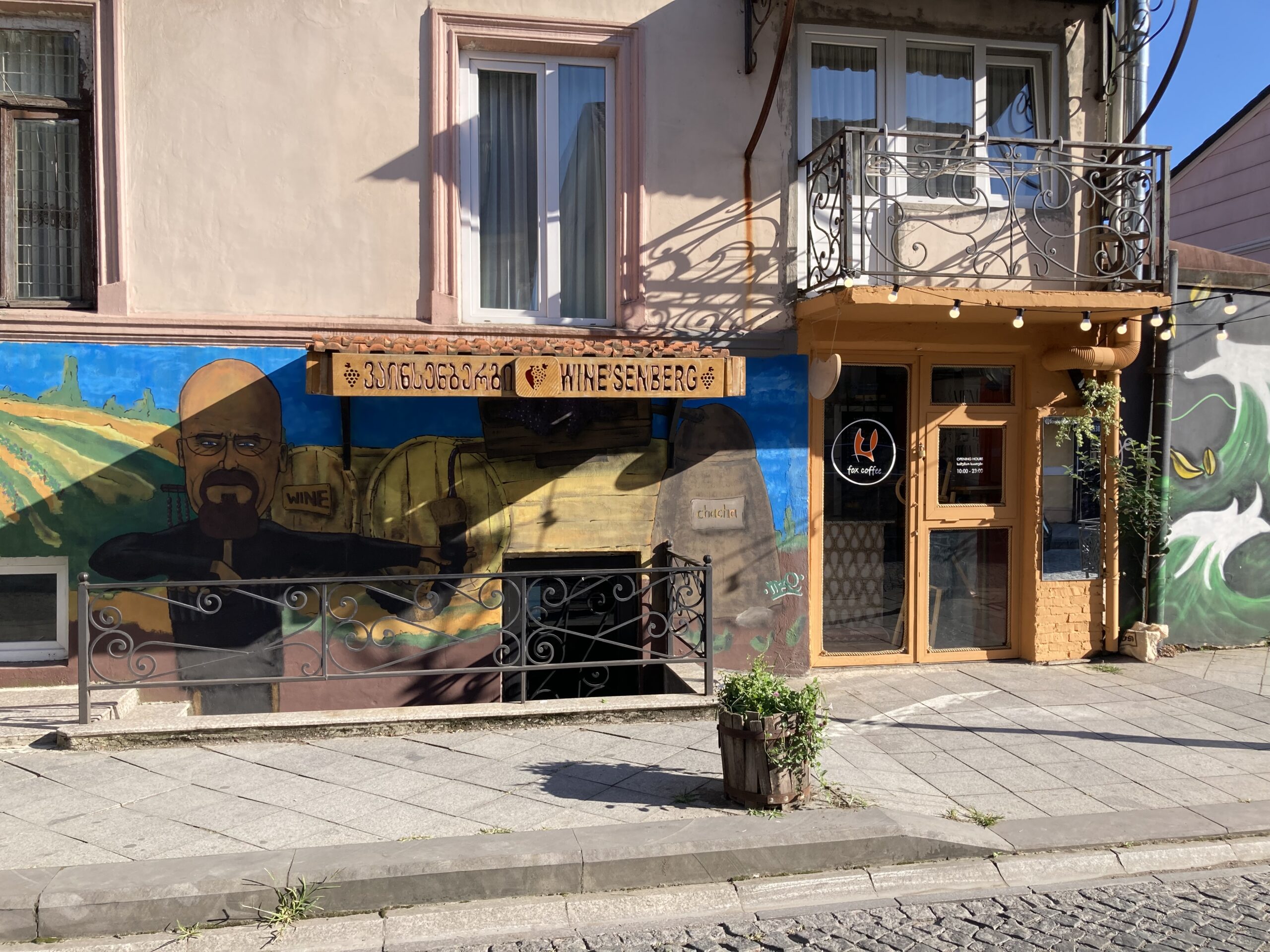
Other than contradictions, Batumi is a town of entrepreneurs that try a bit too hard to please the tourists that flock to it. All the pop culture elements you can think of are exploited here to their limits, wine distributors like “Wine’senberg” are just the tip of the iceberg. Think of Rick and Morty doors at the most unexpected places, American TV series as cocktail names, and so on. It was just a bit too much for me, but then again, most folks here have “people” working overseas, often in the USA, so perhaps it is just a thing those that come back do to not only attract more tourists, but also to create a more familiar environment for themselves.
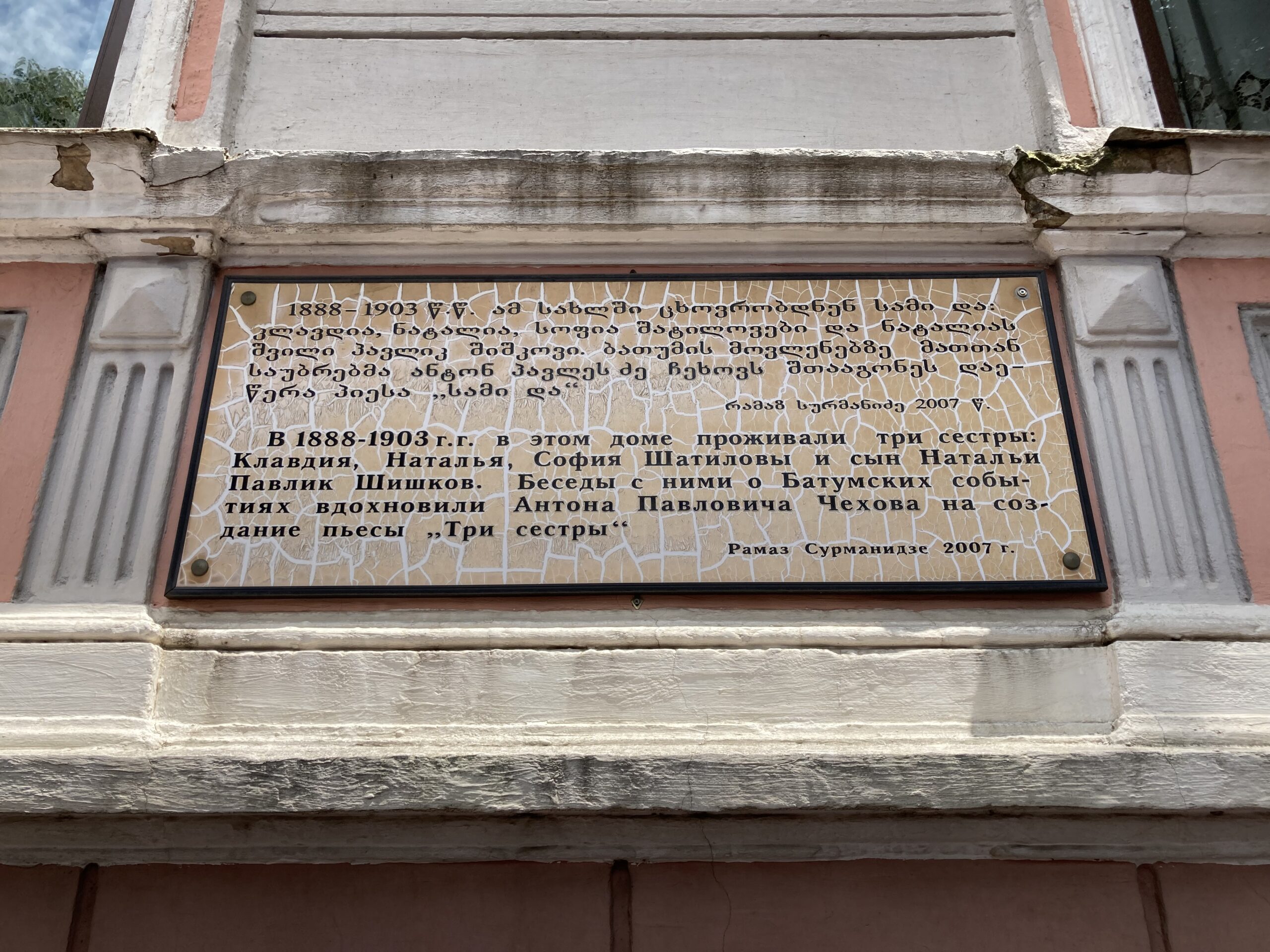
A third but a rapidly deteriorating aspect of Batumi is its Russian (and later Soviet) heritage that helped shape it. Though it was ruled by the Ottoman Empire for a much longer period of time, physically speaking, nothing more than a few mosques and villas remain today that make us remember that era. However, it is different for the Russian case. Even the apartment we stayed in was an integral part of Russian cultural history, where the three sisters that inspired Chekov’s play of the same name once lived.
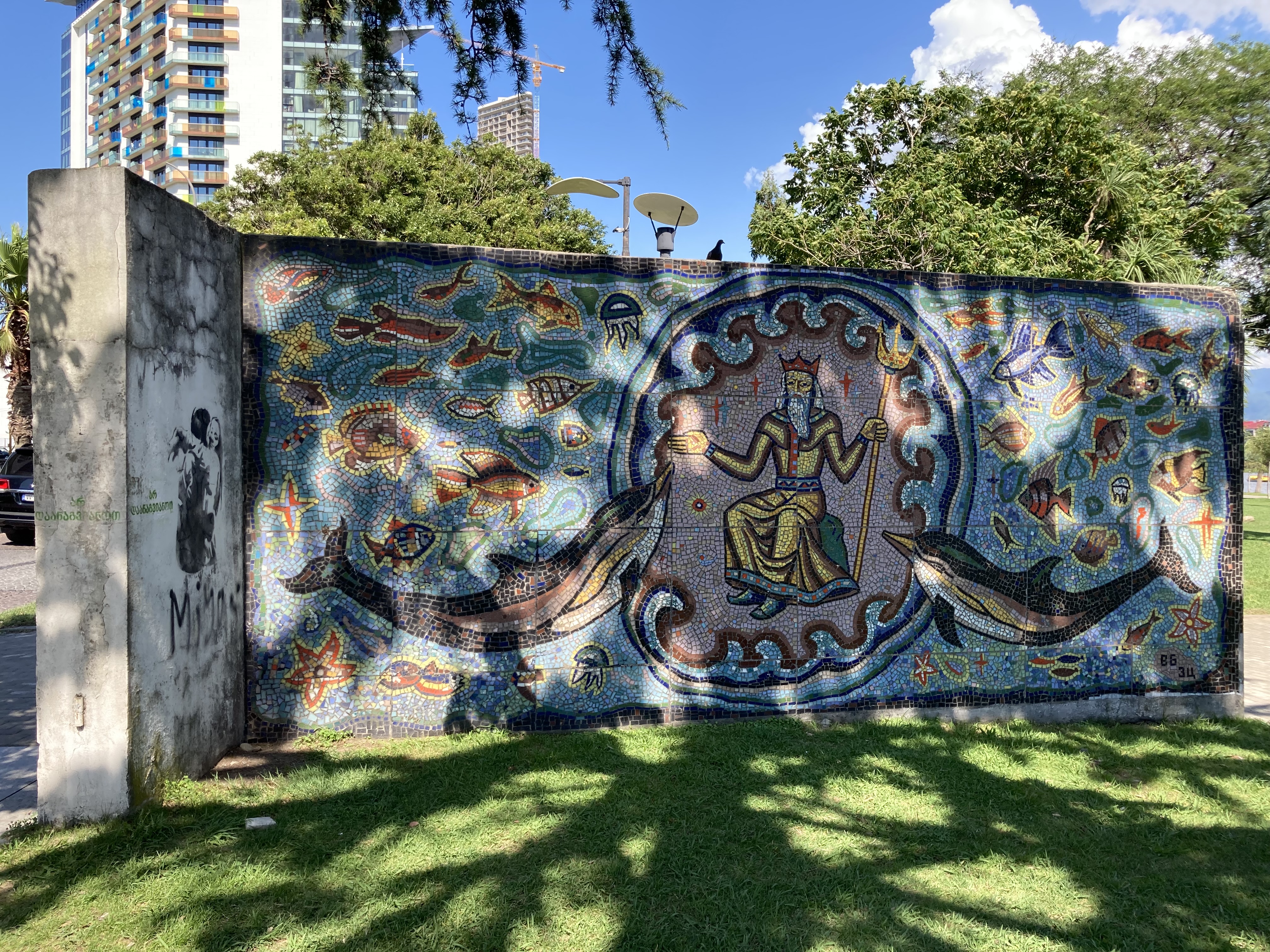
On paper, the Soviet era must have made a much bigger impact to the city. That is true, but with a caveat. While most pieces of history from the Russian Tsardom are protected if not cherished by the local authorities, the same cannot be said for the Soviet heritage. Mosaics like this one, found near the dolphinarium, are some of the last remaining reminders of who once controlled these lands just a bit over three decades ago. Well, that and all the old buildings around, some of which are in the process of being demolished to make room for more “Western” looking housing projects, with more “Western” prices to go along with it, which is hardly an issue for the expats that call Batumi their home.
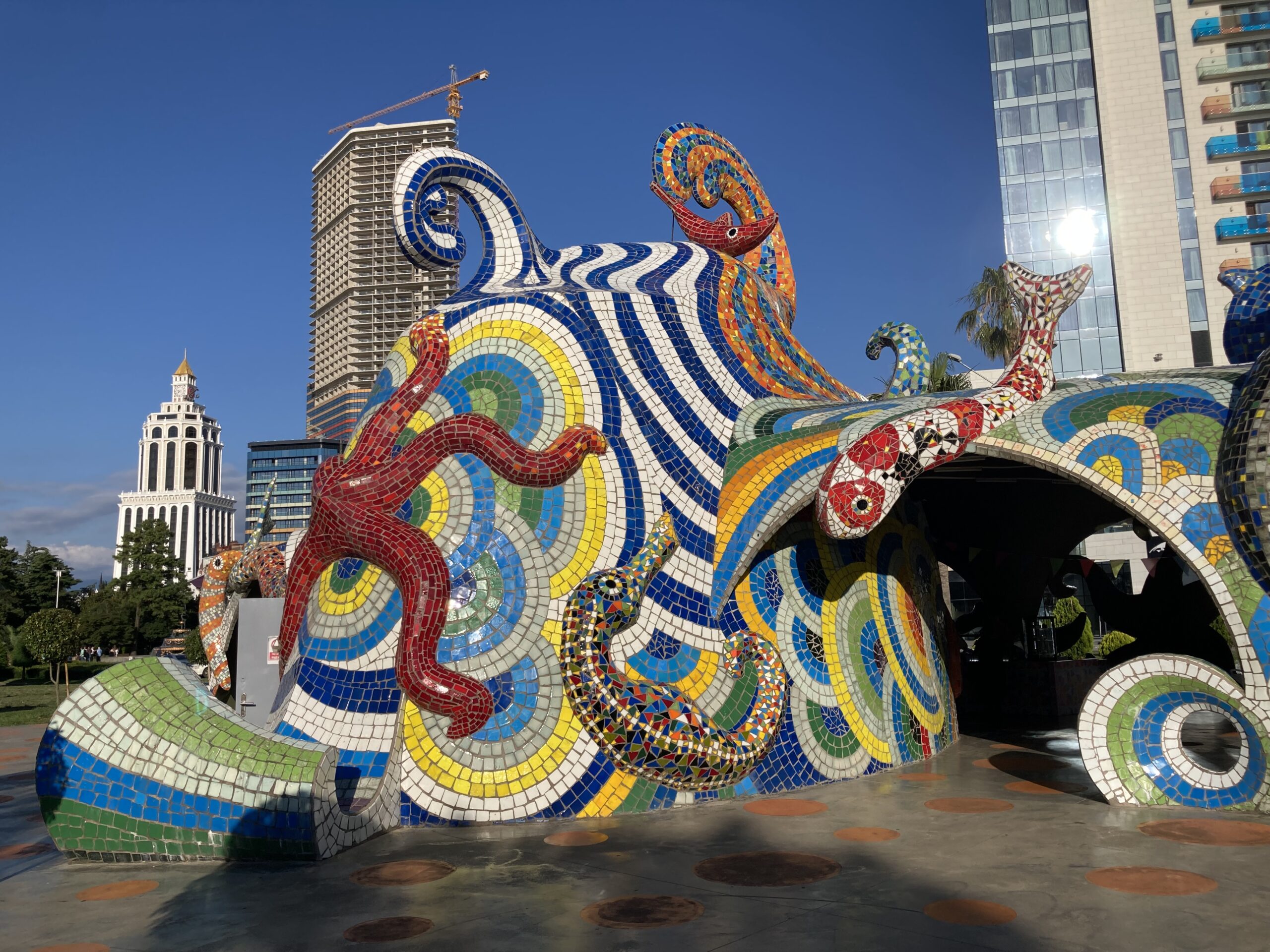
The best relic of the city’s Soviet past is this octopus made out of mosaics. You can even get inside it, look around, it truly is one of a kind, at least so far in my travels.
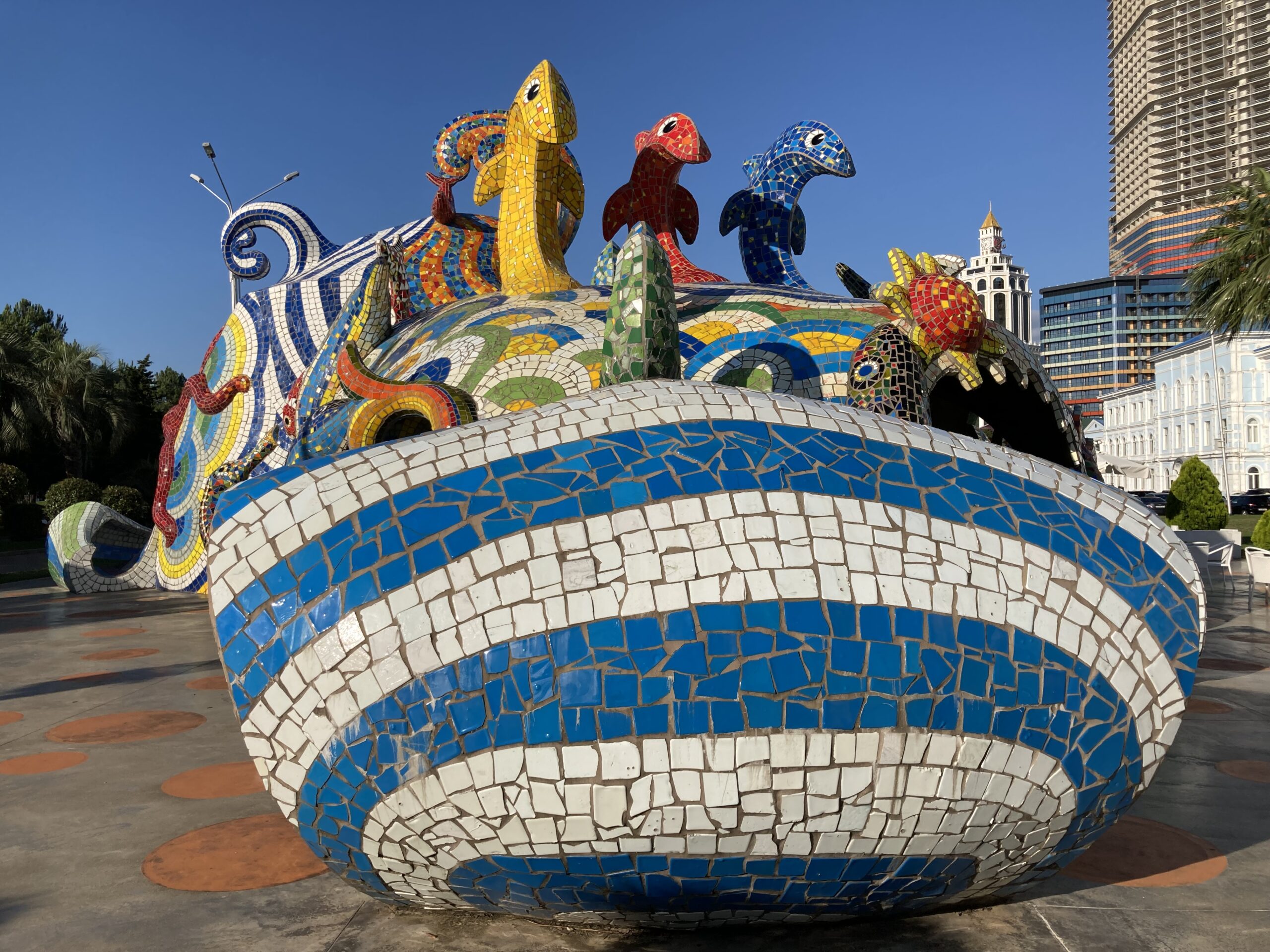
The sight of this marvellous piece of art was enough to almost make me forget that I was in a city of casinos for the Turks, hotels for the rich, and luxurious restaurants serving their mostly Arab and Israeli clientele, and not really a living and breathing organic town for its own denizens. Almost… Georgians I talk to say that they come here to work, not to live, and that should tell a lot.
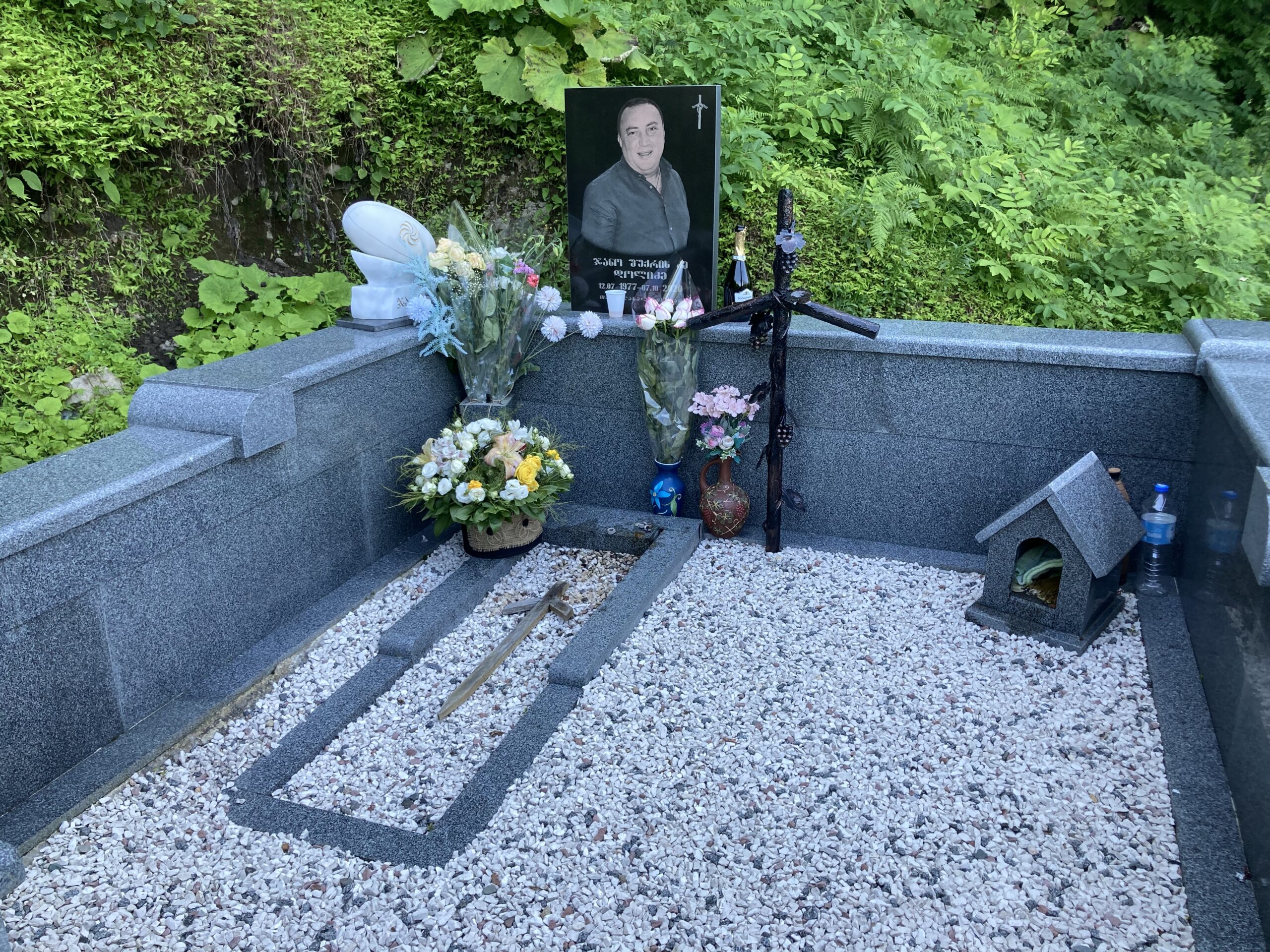
Though the city has its issues, I cannot say that it is completely charmless. Firstly, thanks to its modest size and position along the sea, you are never really too far away from nature. A trip to the nearby Sameba Church is the best proof of that. After a short taxi ride, you can find yourself on top of a hill, a walk on which reveals treasures like this. This is a tomb, and though that much should be clear, the details here are beyond amazing. This was a day after the third-year anniversary of the passing of this gentleman, and we saw the remains of some cups holding champagne in them from the previous day’s gathering here, and the bottle of champagne itself. A small cup that was half filled was offered to the deceased as well, whose face is clearly visible on the tombstone. This is nothing like I am used to back in Turkey, or any other country that I visited, so this alone was well worth the short excursion for me.
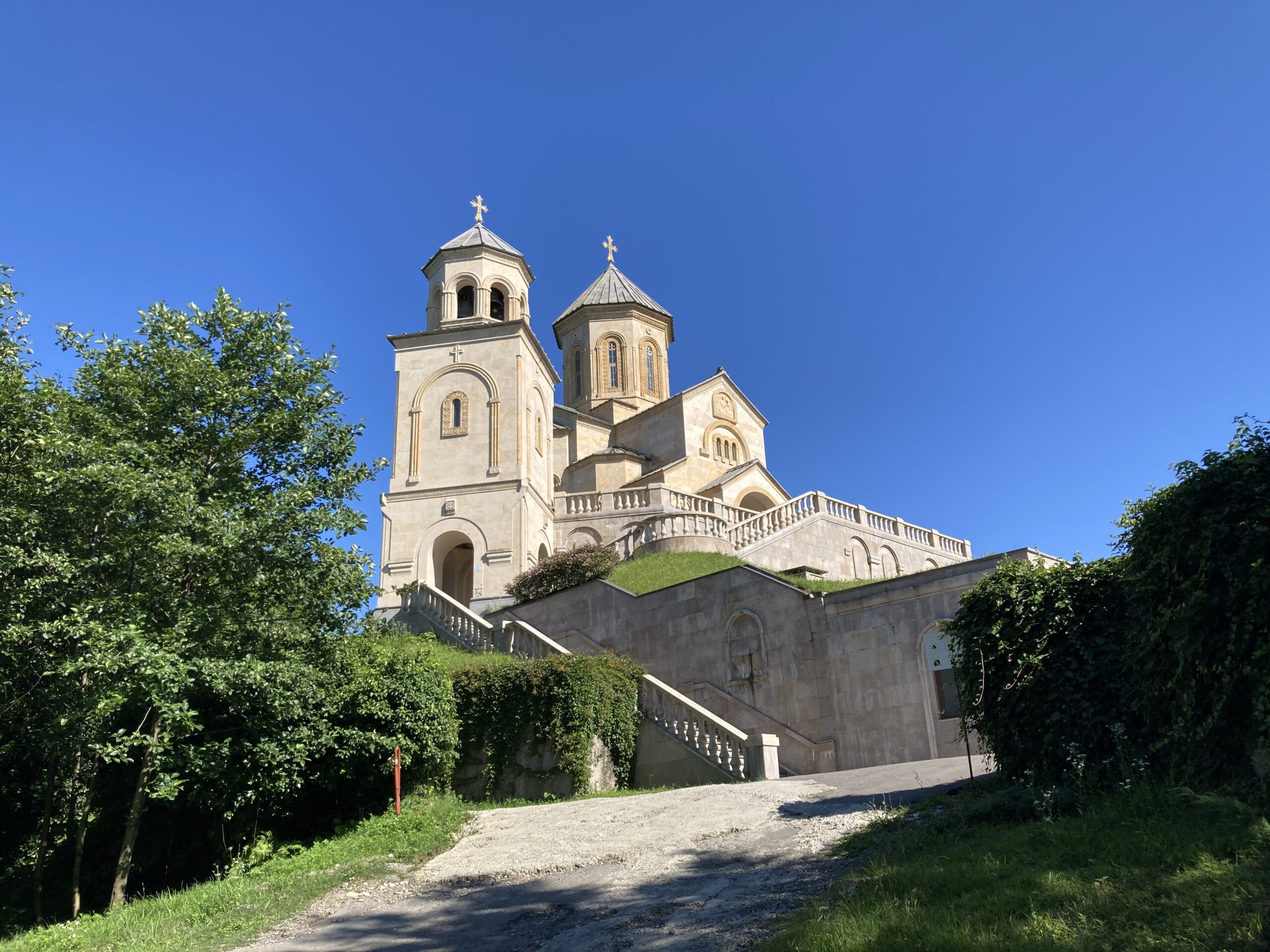
Of course, for the many, the destination is not that tomb, it is this lovely church. Though the interior was not anything to write home about, the exterior of the Sameba Church did make our hearts sing with joy. We were almost alone there too, which added to its charm.
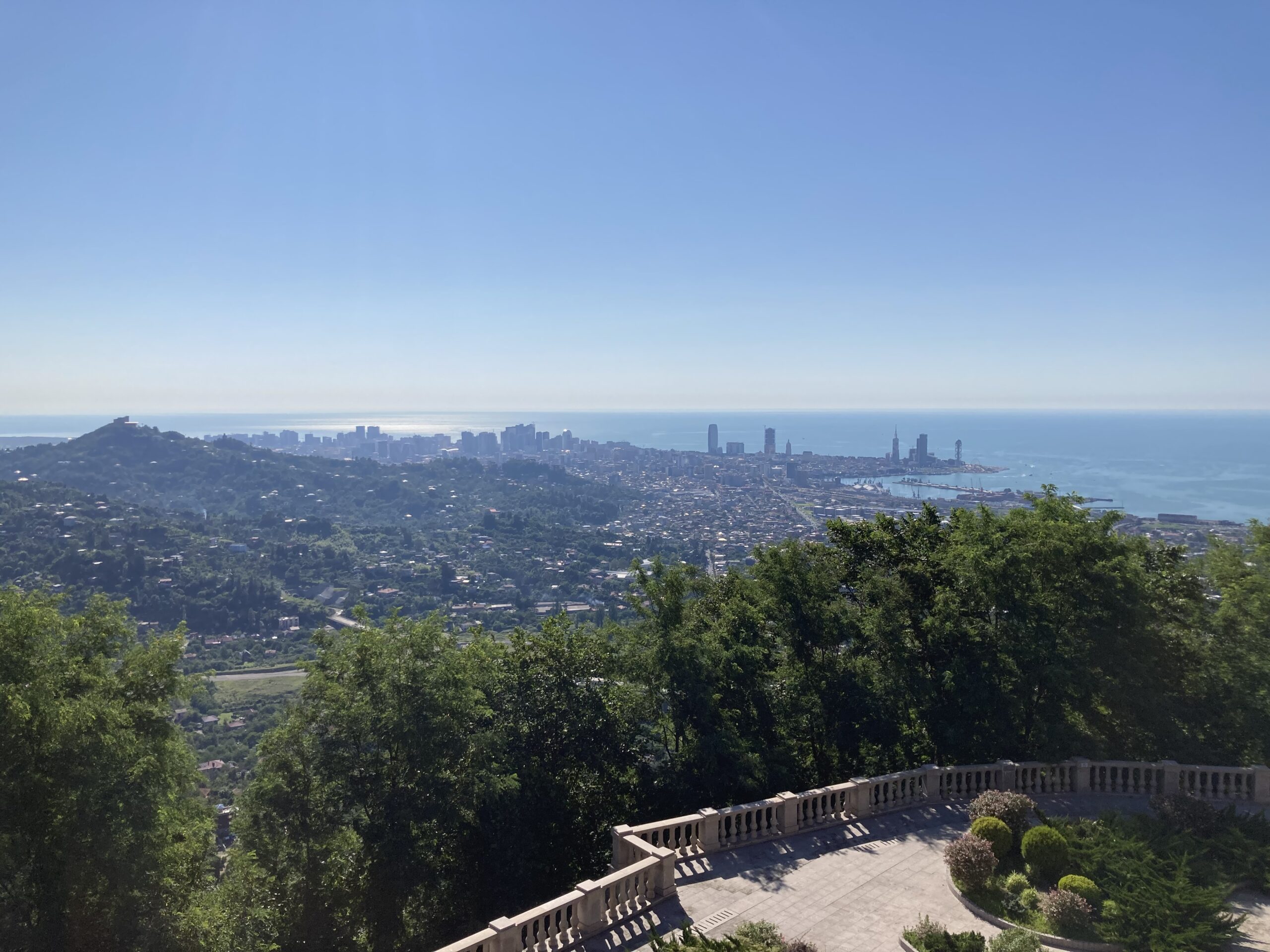
Arguably, the highlight of a trip to this site is this aerial view of the city that you cannot get by using its extremely overpriced cable car service. That “cool” cable car, mind you, costs a whopping 30 GEL for a return ticket, that is 30 times more expensive than a cable car ride in Chiatura, and 15 times more expensive than the one in Kutaisi. This small example shows just what is wrong with Batumi as well… In any case, this exceptional view, and the lovely walk down this hill was the highlight of our stay in Batumi for sure, if we do not include the day trips we took from there.
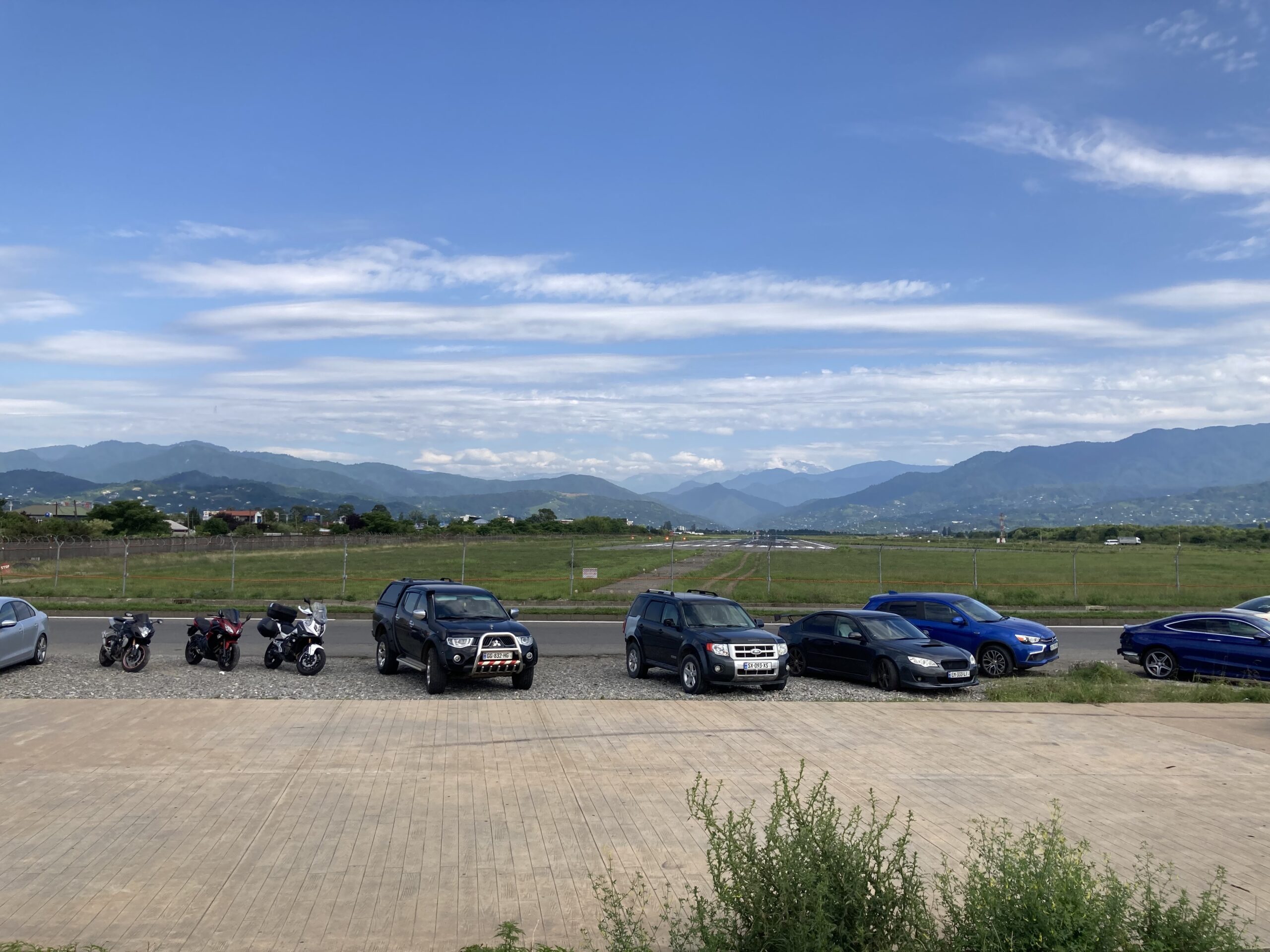
Another one of the highlights of the city, and a somewhat hidden gem that it has is its local airport. Now, the airport itself is small and not worthy of one’s attention, but its proximity to the sea and the ability to get this close to its runway create a scenario that is difficult to find in many other airports around the globe.
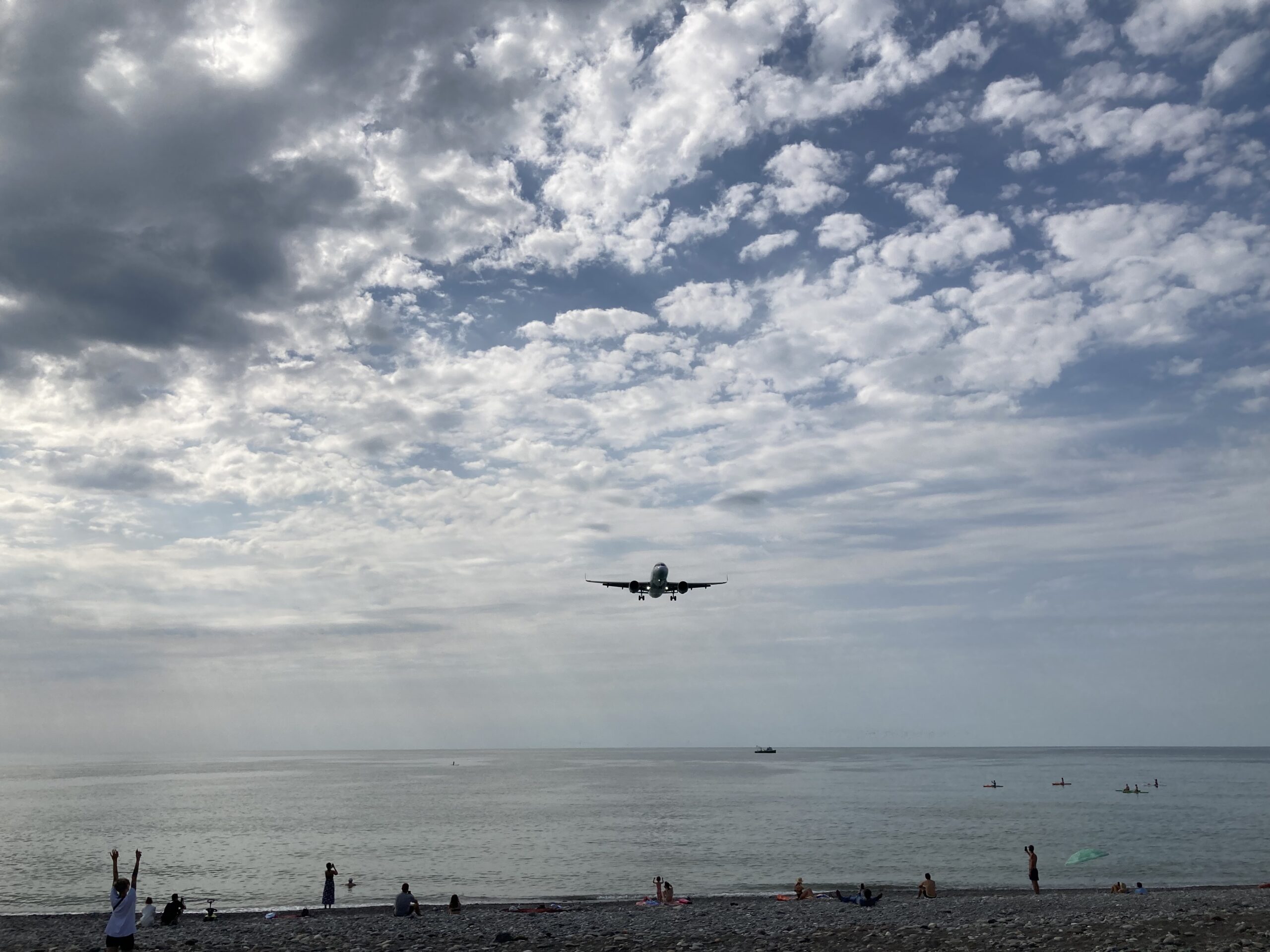
You can literally watch an airplane fly merely a few meters above your head… It is difficult to explain just how great that felt, to just feel the raw power of the engines so close to myself, to see how fast a plane really is. Even taking a single proper photo of it is difficult because by the time you see it coming from the seaside it already gets ready to land. There was actually a huge crowd and even a wedding photo shoot in the area when we were there, so I suppose calling this a hidden gem was going a bit too much.
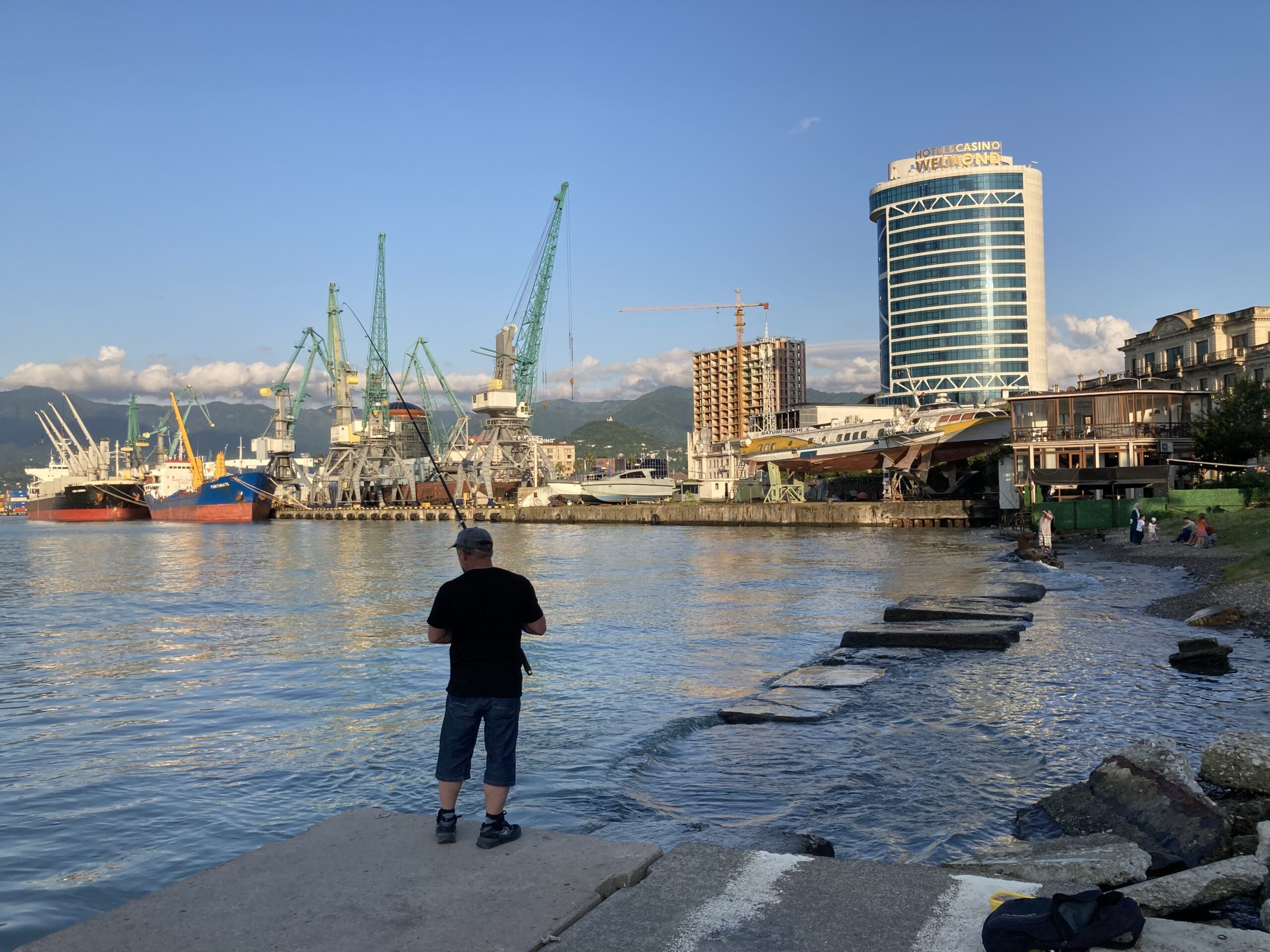
Finally, I must admit that I have no regrets about visiting Batumi. I do not regret spending over a week there despite not enjoying the city itself properly. I liked the sea itself, and how clean its pebble beaches were. I liked how there were Slavs and Muslims all around, I just wished there was also room for everyday Georgians, whose voices (or language) I could not really hear much before moving on to Kutaisi. I did not even mind the casinos despite not having the best of views about gambling, but I wished they did not put their advertisements on every available corner in town. I liked the people that came here to work for a better paying job, to provide for their families, but I wished they also enjoyed living here as well. I love English, that is the language my website is in, and I love Russian, a difficult language that I would love to properly learn one day. But I would prefer to have some more menus in Georgian as well, and not only in these two languages. I am not even a nationalist in Turkey, but the complete and utter lack of anything “properly” Georgian coupled with the issue revolving around the destruction of the city’s Soviet past, and even the omission of its recent history from its museums means that now there is hardly anything that separates it from any other gambling resort towns in the world. I would not really go back to live in Batumi, nor would I likely visit it, but it sure was an exceptional host for us due to its proximity to some of the most fascinating parts of Georgia. Follow along me in those adventures in the coming weeks, as I write about those day trips that were only made possible by the central location of Batumi, for which I will always remain grateful to it!
